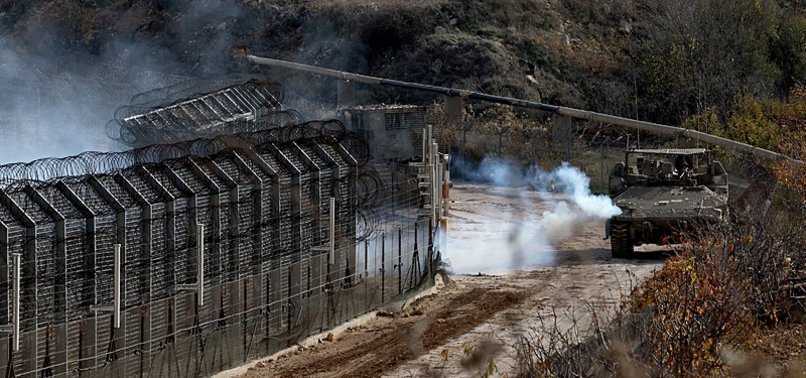Doctors in Qatar are advising the general public to adhere to Covid-19 preventative measures as cases increase.
Increasing negligence to Covid-19 measures has led to an alarming rise in cases nationwide, health experts in Qatar warned, urging the public to remain vigilant.
“Recently most of the infected people are unvaccinated including adults and children and those completed six months after taking second dose of Covid-19 vaccine,” Head of Vaccination at Ministry of Public Health (MoPH), Dr. Soha Al Bayat said on Qatar TV.
She added that another reason for the increase in infection rate appears to be negligence by people who have let go of Covid-19 measures set by authorities.
“When we said that a person is allowed to not wear a face mask in open places, there was a condition – like these places should not be crowded,” she said.
“When people started neglecting wearing face masks, we observed an increase in the cases of Covid-19, seasonal flue and asthma,” she added.
Based on a recent study, the doctor said the booster dose of Covid-19 is 75% effective in protecting people from the novel coronavirus.
“The study proved the effectiveness of all doses of Covid-19 vaccines – first, second and third. People should know that the third dose is not new as it is part of the previous doses that they already took, therefore they may face the similar side effects to those faced after taking the previous two doses,” said Dr. Al Bayat.
Omicron variant
The comments come just days after authorities confirmed the presence of at least four Omicron variant cases in Qatar.
This prompted the ministry to roll out new ‘Travel and Return’ policies in a bid to curb the spread of the concerning variant.
MoPH said the move comes as world health officials warn of Omicron’s large number of mutations, which makes it highly contagious, as it is overspreading in at least 70 countries around the world.
Authorities have now urged the public to follow all preventive measures carefully while further data is anticipated on the severity of the variant.
As per the new regulations, the exceptional red list now includes some 16 countries divided into two categories: A and B.
Category A includes Bangladesh, Egypt, India, Indonesia, Nepal, Pakistan, Philippines, Sri Lanka, South Sudan and Sudan.
Vaccinated Qatari citizens coming from any of the above listed countries to Qatar will be subject to a home quarantine for 2 days upon arrival in the country. While unvaccinated travelers will have to home quarantine for 7 days upon arrival.
MOPH updates its Country Lists based on COVID-19 risk in its Travel and Return Policy. The changes come into effect on Sunday 19 December at 6pm. Visit MOPH website to view the new lists.⁰https://t.co/DOTCyk9TOr pic.twitter.com/9QIX2GKYTb
— وزارة الصحة العامة (@MOPHQatar) December 16, 2021
Vaccinated residents of Qatar and GCC citizens will have to hotel quarantine for 2 days upon arrival in Doha. Whereas unvaccinated travelers will be subject to hotel quarantine for 7 days.
Visitors to Qatar with pre-approved and on-arrival visas will be subject to hotel quarantine for 2 days if fully vaccinated.
However, those who have yet to receive the full course of the Covid-10 vaccine are not allowed to enter Qatar.
The second category includes six countries: Botswana, Etawini, Lesotho, Namibia, South Africa, and Zimbabwe.
Citizens coming from countries listed under category B will be subject to a home quarantine for 7 days upon arrival in the country, “with the option to choose to undergo hotel quarantine if desired,” according to the ministry’s website.
GCC citizens are required to hotel quarantine for 7 days upon arrival in Qatar. On the other hand, residents of Qatar will be subject to a two day hotel quarantine and five days home quarantine, only if fully vaccinated.
Citizens who are unvaccinated, as well as fully vaccinated visitors from those countries, are required to hotel quarantine for 7 days.
For further details and information on test policy in Qatar visit the ministry’s official website.
Detected cases in Qatar
Omicron has been described as a “variant of concern” by the World Health Organization (WHO) who confirmed the detection of the new variant in South Africa, late November.
Read also: Qatar registers first four cases of Omicron Covid-19 variant
Health experts have been encouraging people to register for a booster shot if eligible to build up a level of protection against the variant.
In Qatar, more than 200,000 people have already received their booster shot.
“A booster dose is available to anyone who had their second dose more than six months ago. A booster dose will significantly increase an individual’s immunity and provide longer-term protection against all circulating variants,” the ministry noted.
While no restrictions have been imposed on those who haven’t taken their third dose yet, authorities said “people who are travelling during the holidays should ensure they get their booster dose before they travel.”
These warnings come amid a recent increase in cases in Qatar.
MoPH pointed out that after administering booster doses in Qatar, only limited reports of modest side effects have been received. The reported symptoms include low-grade fever, mild headache, fatigue and soreness at the injection site, which are commonly seen with other vaccines as well.
It also debunked rumours circulating on the internet that linked the booster shot with death cases and severe adverse reactions, stressing that there have been no such cases recorded in Qatar.
Pfizer booster shot ‘effective’ against Omicron
Pfizer also confirmed earlier that its booster shot of the Covid-19 vaccine was able to neutralise the new variant, as per results from new lab studies.
In a statement, BioNTech said that the third dose increases the level of “neautralising antibodies” against the new mutant. Scientists have also said that the jump in antibodies from the extra jab might be enough to protect the receiver from severe symptoms.
“Although two doses of the vaccine may still offer protection against severe disease caused by the Omicron strain, it’s clear from these preliminary data that protection is maximised with a third dose of our vaccine,” Pfizer CEO Albert Bourla said in a statement.
“Ensuring as many people as possible are fully vaccinated with the first two dose series and a booster remains the best course of action to prevent the spread of Covid-19,” Bourla said.
The initial two doses, however, showed to be significantly less effective.
Read also: Qatar issues travel rules update as Omicron detected in GCC.
The company also said that an Omicron-specific version of their coronavirus vaccine is currently under development and would be available by March.
Follow Doha News on Twitter, Instagram, Facebook and Youtube







